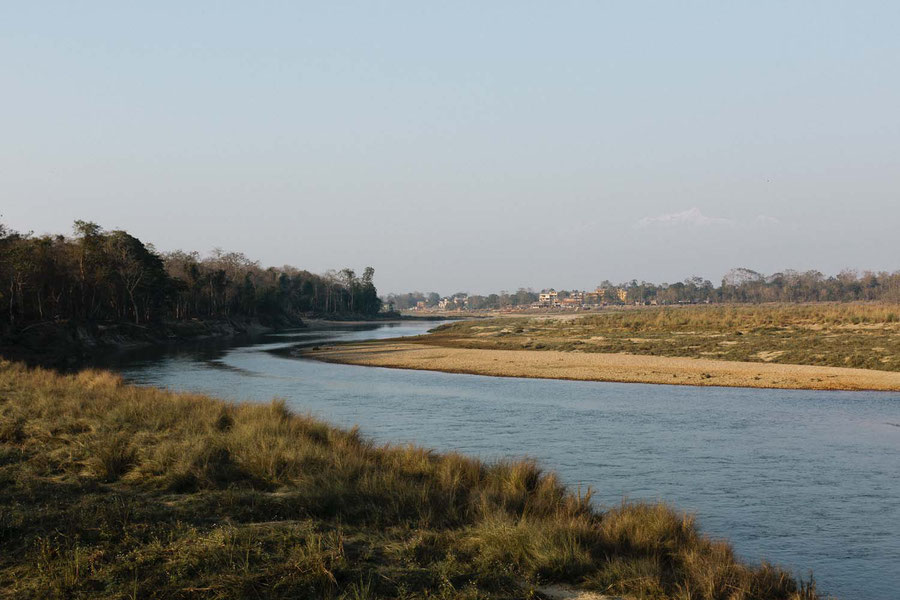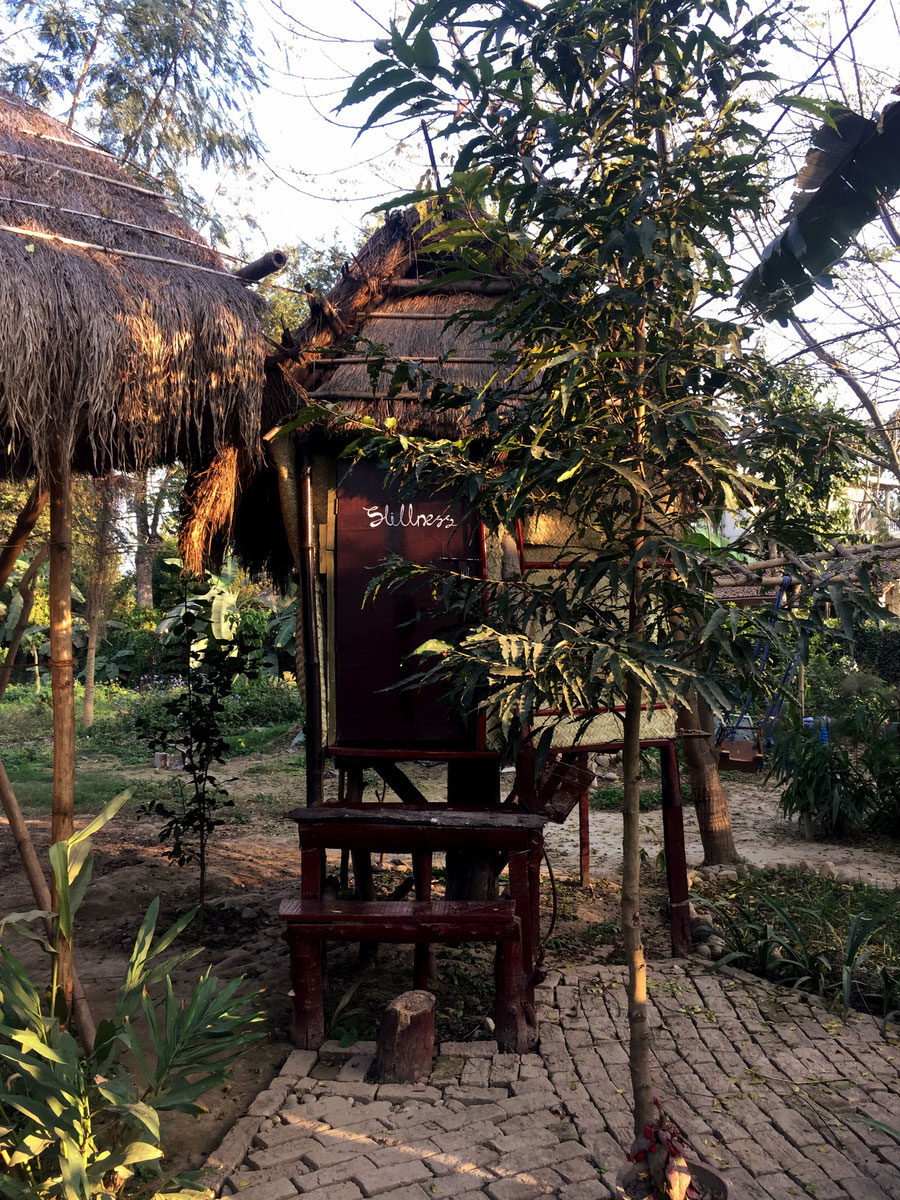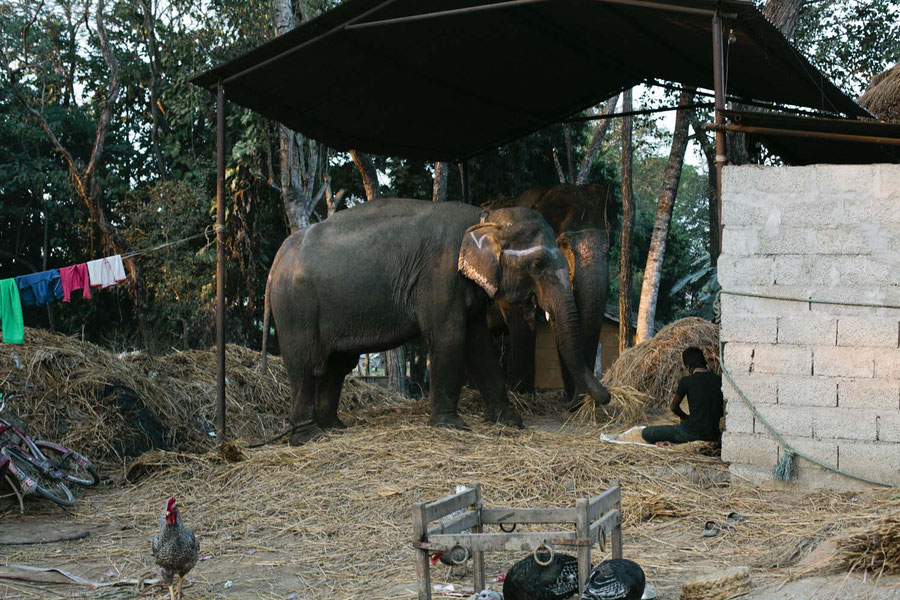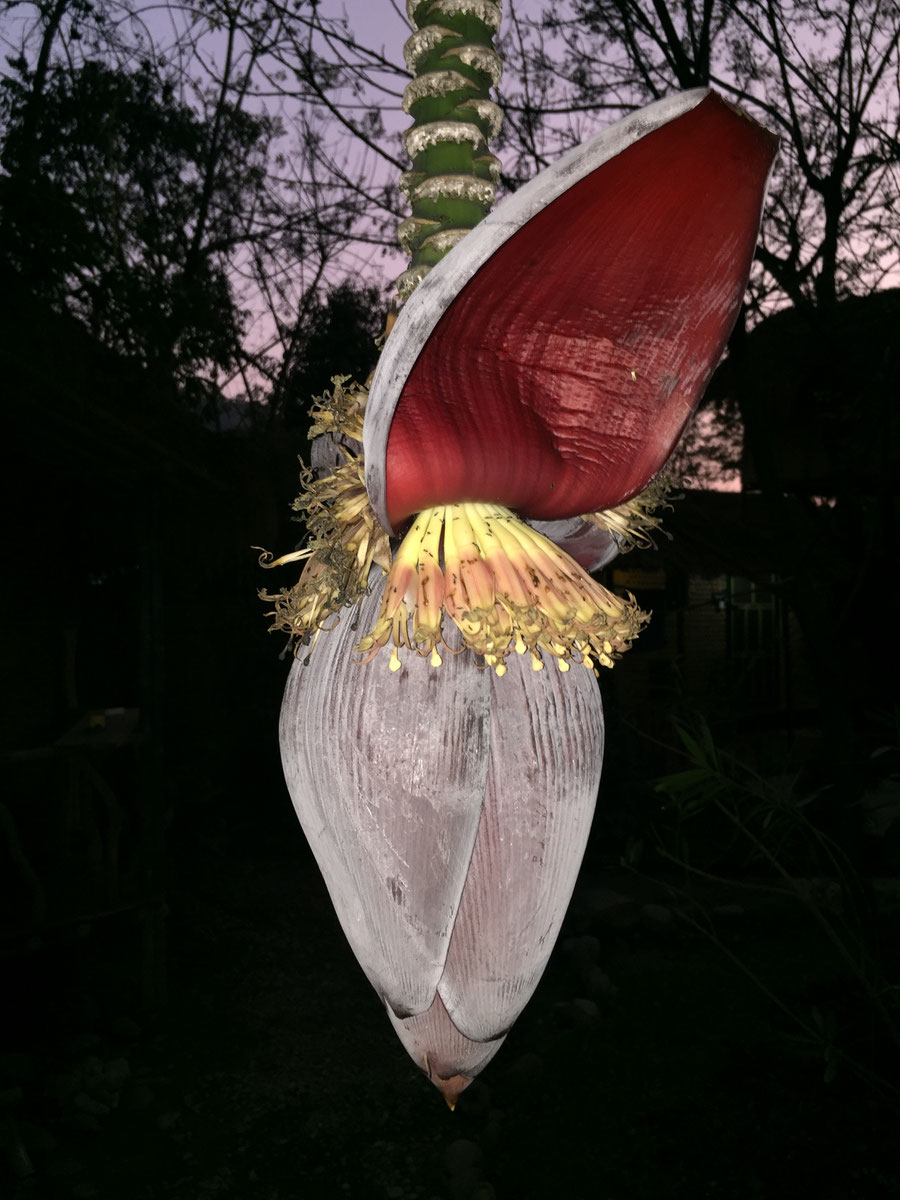My lodging consists of a series of bamboo huts that reach far into the banana trees. I crawl into the smallest with the name "Stillness". It stands on stilts that raise it one meter above the ground. It's an idyllic little paradise, the cabin big enough for a bed and a narrow corridor for my backpack. The sounds of the jungle are louder here than those of the village, and yet, we are surrounded by houses. The building rage of the Nepalese strikes me for the first time. On the neighbouring plot, a colossal concrete monster rises from the ground. Directly behind it is the Rapti river disappearing into the fog. It is home to crocodiles, rhinos and countless birds. Here, I see a kingfisher that flies in the air without moving forward. My camera is too slow at that particular moment.
It's winter here. To me, it feels like spring, almost summer. Every evening, the inhabitants of the various huts gather around a campfire. It gets so cold that it's unbearably cold without it. That's how I get in touch with a whole bunch of other people. Everyone seems to volunteer or run some NGO. Some want to teach the village children English. Others save the elephants, the next is on a cheap holiday. Every one of those ideas seems relatable to me, none I would do myself. Here begins a thought process that will accompany me through my entire time in Nepal. Statistically, Nepal is one of the most impoverished and underdeveloped countries in the world. The problems here are complex and seem unsolvable to me. For example, nobody knows how to recycle the masses of plastic that accumulate on a daily basis. The infrastructure is terrible and decentralised solutions are needed. The animals are maltreated, which breaks the hearts of tourists but doesn't bother locals, as they know the danger they are exposing themselves to (specifically with elephants). My Western eyes see much injustice, sadness and illness, but they are Western eyes. The locals look at the problems quite differently. I meet many people from my corner of the world whose view of things seem naive and short-sighted. Often, people help to feel good about themselves. Not for a long time so that we could see it as commitment, just a few weeks or months here and there, whatever one person can give right now. I feel more and more before I can put it into words, that this is out of the question for me. The help I would give would be temporary and very limited. I hold out a hand, but it is not an offer to pull someone out of trouble. It's a short handshake, a bandage and not a solution.
My head keeps drifting to Mowgli. His story comes from regions like this (on the other side of the border, but still). He fits in here. Again, the villagers are characterised by fear. Fear of the wild animals, domesticated elephants and nature. It's not an abstract feeling. Seven people were trampled to death by a wild male elephant this year alone, the tiger is sometimes heard at night and the nightly visits of an ageing rhinoceros (also male) thrown out of the herd, draws a trail of destruction through the plants of the village every morning.
I wake up one night as the mice dance over my ceiling and freeze at a sound that I can't place, a rhythmic chewing sound that I can hear through the thin braided wall of my hut. Elephant? Rhino? At first, I freeze in my bed. It'll pass. When something bumps against my cabin and shakes it dangerously, the fear sets me in motion. I open the door cautiously. Except for the fog, I see nothing out of the ordinary. But I am at the front of the hut. The sound came from the back. I sneak down my tree trunk stairs with shaking knees and hope that the animal is blind and deaf. As soon as I am down, I squat and look under the hut to the other side. I see three huge legs as the banana tree crashes loudly. It's a rhino. Rhinos have terrible eyesight and only start to move once there's no other option. I feel a bit calmer. It doesn't stop chewing. Sentient beings that eat aren't dangerous, I conclude and continue to stare at him in awe. I hope it doesn't destroy my hut. Eventually, it gets too cold, and I crawl back into my bed. I listen to the rhino chew for a few more hours. But before dawn, it moves away from my cabin. I am grateful and fall back into a restless sleep.
* If you like what you read, consider supporting me on patreon!*





Write a comment